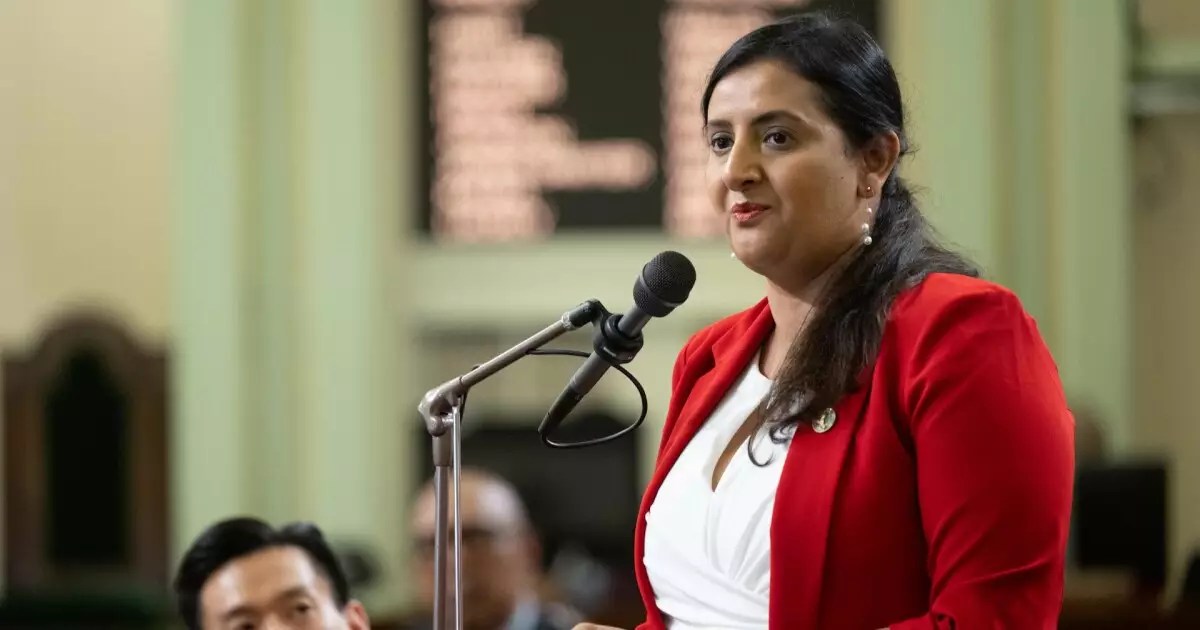The recent signing of Assembly Bill 100 by Governor Gavin Newsom has sent shockwaves through the political landscape of California. At the heart of this supplemental budget bill is a staggering $2.8 billion earmarked to cover unforeseen costs associated with Medi-Cal, it’s a costly move that has raised a number of eyebrows among constituents, particularly regarding its implications for undocumented immigrants. While it is commendable to support those in need, the governor’s decision to expand this program during an era of financial strain raises critical questions about fiscal responsibility and the prioritization of resources.
While Democrats herald the allocation as an essential step towards equitable healthcare accessibility, one must confront the harsh realities that accompany such decisions. Medi-Cal, the state’s version of Medicaid, has faced skyrocketing costs in recent years, with reports indicating that general fund spending jumped to $42.1 billion—an alarming figure that demonstrates systemic inefficiencies. Critics of the bill, such as Assemblymember Carl DeMaio, R-San Diego, argue that taxpayer dollars should not be used to fund healthcare for illegal immigrants, a sentiment that resonates strongly with many Californian voters who feel their needs are being sidelined in favor of non-citizens.
A Disproportionate Burden on Taxpayers
The budget appropriation under Assembly Bill 100 has sparked a profound divide among lawmakers and citizens alike. Republicans have consistently pointed to the untenable financial burden this situation places on taxpayers, many of whom are struggling to afford their own healthcare. Assemblymember DeMaio’s contention that Medi-Cal for undocumented immigrants constitutes a “gift of public funds” embodies a growing concern about equitable distribution of state resources. It strikes as wildly unfair for low-income families and the working class in California to bear the financial weight of a program that helps individuals who have not contributed to the system.
Moreover, the timing of this allocation raises questions about the priorities of state leadership. As California grapples with an ongoing housing crisis, rampant homelessness, and rampant wildfires, it seems reckless to channel $2.8 billion into a program so contentious and seemingly detached from the immediate concerns of many citizens. Assemblymember Jasmeet Bains, a pediatrician, argues that preventative healthcare for undocumented immigrants ultimately reduces costs in emergency situations, but this argument falls flat when juxtaposed with the harsh realities of budget constraints and rising costs within California’s healthcare system.
The Implications of Wildfire Funding
In addition to Medi-Cal funding, Assembly Bill 100 includes provisions aimed at assisting local governments impacted by recent wildfires—a commendable initiative aimed at mitigating disaster fallout. The allocated $181 million for forest resilience and conservation is a step in the right direction, yet one cannot overlook the inefficiencies that have plagued California’s wildfire management efforts. Years of inadequate forest management and erratic funding have rendered the state’s fire safety measures underprepared, and simply pouring additional funds into the system without addressing underlying structural issues is unlikely to yield lasting change.
It is particularly troubling that the executive order aimed at streamlining wildfire safety projects suggests a piecemeal approach rather than a cohesive strategy. Without substantial reform, it remains dubious whether these funds will achieve meaningful results in protecting communities against future fires. The state’s historical tendencies toward inefficient spending only exacerbate the concern, casting doubt on whether this financial injection will translate into tangible outcomes.
Time for a Rethink
The political divide in reactions to Assembly Bill 100 epitomizes the harsh reality surrounding California’s healthcare and disaster response strategies. While debating the merits of healthcare for undocumented immigrants, it is critical for politicians to reflect on who is footing the bill. The current trajectory not only threatens fiscal viability but also widens the rift between governmental actions and public sentiment—something that poses risks to the state’s leadership. As discussions surrounding this budget unfold, it becomes ever clearer that a reevaluation of priorities, transparency, and accountability is essential for charting a sustainable course forward. California’s residents deserve a government that prioritizes services for its own citizens while ensuring responsible and equitable financial practices.


Leave a Reply